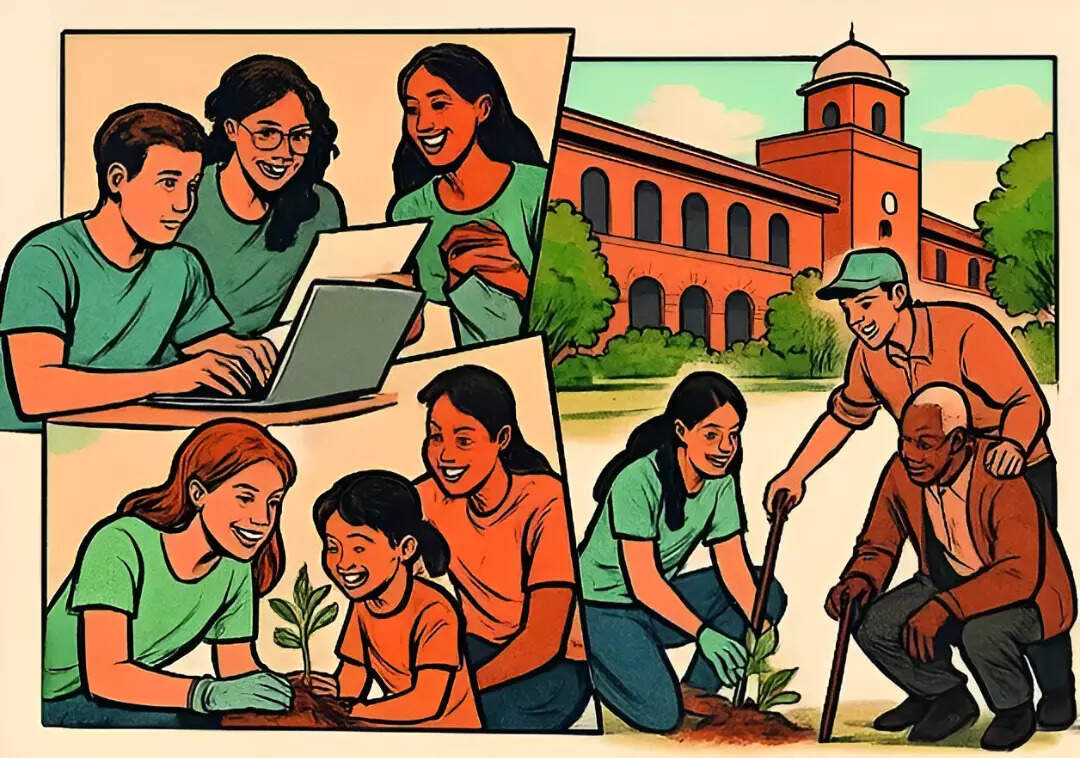
In a significant move away from traditional classroom-based education, Delhi University has implemented some provisions of New Education Policy (NEP) that allow students to earn academic credit through real-world experiences.
As part of the curriculum, students in their third to sixth semesters can now choose internships, projects or community service – termed community outreach – as alternatives to certain skill-based courses. Lady Shri Ram College for Women is among the first institutions to actively implement it.
Over the summer break, LSR students completed 90 hours of volunteer work with NGOs, gaining first-hand insight into grassroots social issues. According to acting principal Kanika K Ahuja, the experience not only deepened their understanding of community challenges but also fostered empathy, a sense of responsibility and greater civic awareness.
“For the first time under NEP, students are being offered course credits for internships and community outreach. Earlier, internships existed independently, but now the university has included them under the SEC (skill enhancement courses) category,” said Ahuja. This change ensures that students who engage with companies, NGOs or community groups receive formal academic recognition for their work.
Students must complete 90 hours in a month during summer, or 60 hours over a semester. The college signs an MoU with the host organisation, after which a faculty mentor tracks weekly progress. At the end, participants must submit a report, deliver a presentation and appear for a viva with both teachers and the organisation supervisor.
“This year, the college signed 28 MoUs with different organisations and placed 116 students in summer internships and outreach roles,” Ahuja said, adding that conducting vivas has been logistically demanding since many organisations host only a handful of students. However, she emphasised that the process strengthened accountability for all stakeholders.
During the current semester, the programme has drawn even greater participation, with 120 students placed in community outreach and 141 in internships.
The initiative has faced challenges. Some organisations and NGOs often struggled to align schedules with students. Despite these hurdles, the college has successfully piloted the programme. Describing the initiative as “revolutionary”, Ahuja said that for the first time, real-world engagement was formally integrated into academics at DU, allowing students to gain credits while contributing to society.
